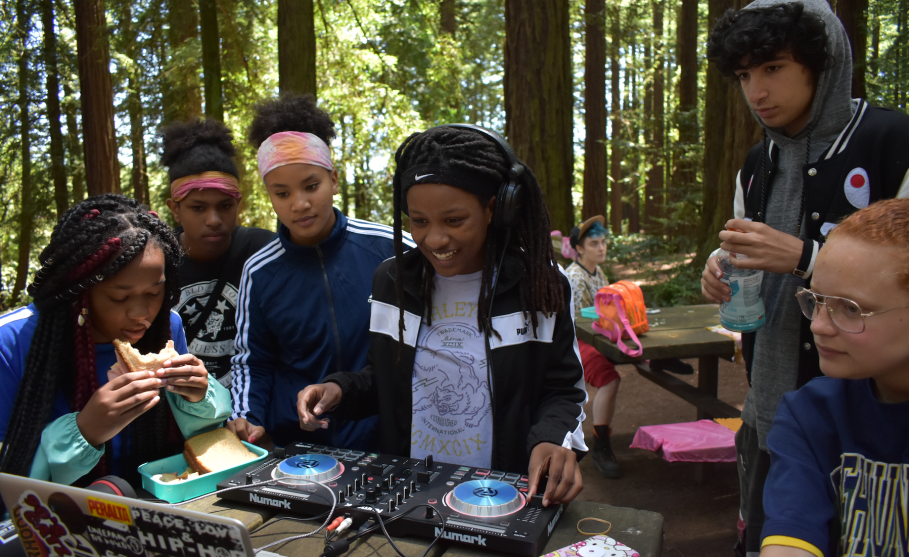
Students create hip-hop projects rooted in knowledge of Oakland public parks and climate change as part of Agents of Change youth artist residency program, funded by the California Arts Council. (Pictured pre-pandemic.)Sarah Arnold Photography/Hip Hop for Change
Turning a pandemic into an opportunity for educational and artistic empowerment is what Khafre Jay lives for, and his celebrated Hip Hop for Change network isn’t about to let today’s crisis (just the latest) short-circuit its mission. Before this pandemic, his grassroots group worked in schools and on the ground, teaching more than 20,000 kids the hopeful messages and inspiring beats of hip-hop as a human rights movement.
Jay is finding fresh ways to adapt: hosting a weekly Zoom for kids and teachers, sharing grant applications with unemployed artists, producing homemade hip-hop videos, and keeping people alive—HipHopForChange.org has a directory of resources for kids to find food, rent, utilities, and health care. “We’re always thinking of how to take care of our staff, our people, our folks,” he tells me, including an emergency fundraiser for artist-educators who’ve lost their jobs.
His group just scored two grants from the California Arts Council, one to provide free programming to all public libraries in Oakland and the other for an environmental justice summit. “We’re bringing environmental and hip-hop people together who don’t normally get to rock out. It’s amazing to think that we’ve taught more than 22,000 kids. When you create hip-hop curriculum, kids are gonna ask you for it! These kids are starving for any kind of culturally relevant pedagogy. They want enrichment.”
Hip Hop for Change also hosts women’s empowerment summits, after-school classes, and mentor workshops. “We’re investing in a nonviolent movement of resilience. I want to get people trained up like Medgar Evers trained up his folks, to expand where kids don’t have stable access to hip-hop expression, to further babies knowing they’re beautiful.”
Let Jay know you hear him, check out HipHopForChange.org, and let me know how you think hip-hop can rally kids today at recharge@motherjones.com.

















